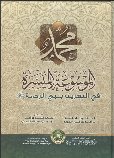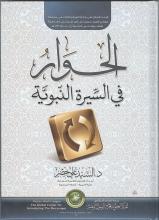All About THE PROPHET MUHAMMAD
This refers to the use of one's goods and one's self in such a way that will be pleasing to Allah. Those around him asked the Prophet (saas) a number of questions on the subject, and his explanations increased their excitement about the idea. This is how the Qur'an refers to the situation:
They will ask you what they should give away. Say, "Any wealth you give away should go to your parents and relatives and to orphans and the very poor and travellers." Whatever good you do, Allah knows it." (Surat al-Baqara: 215)
In the 72nd Sura of the Qur'an, Surat al-Jinn, Allah reveals that the jinn too listened to the communications of the Prophet Muhammad (saas) and the Qur'an, and that some of them were bound to the Prophet (saas) as Muslims. One verse on the subject reads:
Say: "It has been revealed to me that a band of the jinn listened and said, 'We have heard a most amazing Recitation. It leads to right guidance so we believe in it and will not associate anyone with our Lord.'" (Surat al-Jinn: 1-2)
In that same Sura, Allah also reveals that some jinn are actually Muslims:
Those who denied the Qur'an and the Prophet (saas) placed a number of difficulties in his path, and tried to prevent him communicating his message, and, even to kill, arrest or exile him. Yet, in every case, the Prophet (saas) would explain to them the existence and power of Allah, that he himself was a true messenger and that the Qur'an was brought down as truth from our Lord. He warned them of the punishment of the hereafter, too.
Those who denied the Qur'an and the Prophet (saas) placed a number of difficulties in his path, and tried to prevent him communicating his message, and, even to kill, arrest or exile him. Yet, in every case, the Prophet (saas) would explain to them the existence and power of Allah, that he himself was a true messenger and that the Qur'an was brought down as truth from our Lord. He warned them of the punishment of the hereafter, too.
Those who denied the Qur'an and the Prophet (saas) placed a number of difficulties in his path, and tried to prevent him communicating his message, and, even to kill, arrest or exile him. Yet, in every case, the Prophet (saas) would explain to them the existence and power of Allah, that he himself was a true messenger and that the Qur'an was brought down as truth from our Lord. He warned them of the punishment of the hereafter, too.
The Prophet (saas) was always very patient and understanding with those who denied the existence of Allah, the Qur'an, and his own Prophethood. He also made it clear that he would treat them with full justice and not enter into pointless arguments with them. What he said, in accordance with the command of Allah, is recounted in the Qur'an:
Allah possesses infinite mercy, compassion and forgiveness. In the Qur'an, He reveals that He will accept the repentance of every one of His servants, and that He will forgive an individual's sins if he renounces them. The Prophet (saas) related those tidings from Allah to the disbelievers:
Say to those who disbelieve that if they stop, they will be forgiven what is past; but if they return to it, they have the pattern of previous peoples in the past. (Surat al-Anfal: 38)
In the hadiths, the Prophet (saas) told people that they can repent at any time:
It is possible to see the Prophet (saas)'s trust in and submission and devotion to Allah in his every word and deed. Even in the most difficult of times, the Prophet (saas) was certain that Allah would help him, that the faithful would be victorious and that the disbelievers would be disappointed.
Say to those who disbelieve: "You will be overwhelmed and crowded into Hell. What an evil resting-place!" (Surah Al 'Imran: 12)
The Prophet (saas) stated the following in one of the hadiths:
One of the most prominent characteristics of those who deny Allah is that they do not believe in the hereafter. In the time of the Prophet (saas) too, such people would not believe that people would be resurrected in the hereafter. The Prophet (saas) responded to their claims with the wisest and most concise answers. The Prophet (saas) was commanded to employ such language in the Qur'an:
One of the most important duties of Allah's messengers was to warn people and to make them fear His punishment and Hell.






.jpg)

